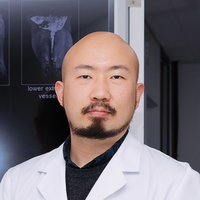Biotechnology & medicine
Kunwoo Lee
Developing innovative treatments for genetic diseases is my mission.

Korea
Minhong Jang
Conquering cancer through artificial intelligence.

Korea
Taehyun Shin
Developing a high-performance MRI that can diagnose even small diseases.

Asia Pacific
Hyeon Jeong Lee
Molecular vibrational spectroscopic imaging techniques to acquire biomolecular information.

China
Yiming Mo
Automated high-throughput screening platform to expediate the discovery of synthetic chemistries.
